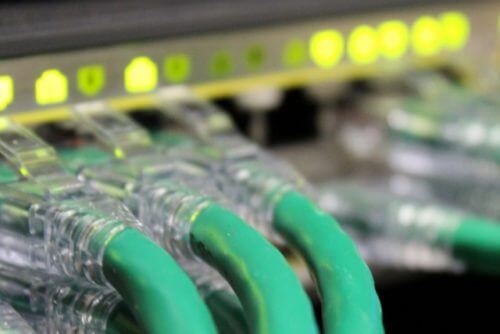The process of selecting a data center provider can be challenging. There are a variety of factors that come into play when selecting a facility, but on a basic level, colocation pricing and budgeting is often one of the first.
The question of budget is a crucial one for businesses, so being able to dissect the cost vs. benefits of data center services can not only aid in the selection process, but can alleviate the stress of committing to a facility without fully understanding how its pricing structure it will affect your business. There is no definitive rulebook when it comes to colocation pricing, as each facility and customer’s needs are different. However, the list of considerations below will provide a starting point for piecing together the factors that influence colocation pricing.
Power and Redundancy
It’s no mystery that colocation facilities are energy intensive. Making sure that servers are up and running 24 hours a day, 7 days a week is essential to business operations and as such, power typically encompasses the majority of the cost in a data center.
Colocation power costs are contingent on a variety of factors including (but not limited to) the power source, facility size and location. In terms of power source, often both the primary and backup power sources are factored into colocation pricing. While cheaper power options may be attractive at surface value, colocation facilities that have limited access to reliable power and redundancy create potential risk for business-critical assets in the event of a disruption – particularly because the redundancy offered within a data center is one of the main advantages of choosing to collocate in the first place. Available power configurations will vary by provider – and customer need as well. However, it is one of the largest factors to evaluate when considering a provider.
Supply and Demand
As in all business ventures, supply and demand within the industry will play a role in determining colocation pricing. Markets are subject to change over time, so paying attention to trends is crucial.
For example, as a variety of data centers in an area near capacity, colocation pricing may decrease in order to bid for prospective customers. A similar effect would likely occur if new colocation facilities enter the market, creating pressure for existing data centers. In any case, pricing may remain stable for a length of time if the market reflects stability or may increase or decrease depending on these and perhaps other unforeseen factors. Supply and demand within the market is definitely something to monitor when selecting a data center provider.
Risk Mitigation
As addressed in regard to power above, sometimes the cheapest colocation pricing solution is not the best for maintaining a solid business infrastructure. Risk mitigation, similar to power redundancy, plays a role in pricing due to the equipment, techniques, compliance, and technologies required to protect the facility and customers’ data. Data centers that are certified based on industry regulations may present an increased pricing structure but are likely to provide higher quality solutions for protecting your equipment.
Connectivity and Bandwidth
Connectivity – like power – is another critical asset of data center operations, and is subsequently tied to colocation pricing. High-speed, high-functioning Internet is essential to stable operations, as its absence has the potential to significantly damage business infrastructure.
Clients in a data center that is linked to one specific carrier may fall subject to lack of competition – high prices and limited bandwidth capacity. Carrier-neutral data centers offer direct access to a variety of carriers, allowing clients to leverage several options for low latency, high-performing networks – helping further improve operational efficiencies.
The quality differential also means the difference in application uptime in the event of network failure. Carrier diversity is important to evaluate because weak bandwidth options or the lack of redundant bandwidth options has the potential to impact your business’ bottom line. The connectivity services provided within a colocation center are often more affordable and reliable than in-house hosting.
Security
One of the primary reasons businesses choose to collocate is for the heightened security a remote facility provides in housing sensitive information. Not only is there increased physical security in the form of restricted access, round-the-clock monitoring, and mantraps, but secure colocation cabinets and virtual security measures like video surveillance, biometrics, and fob access are also provided. As anticipated, however, this advanced technology comes with a price, and as such a heightened level of security becomes a primary consideration in colocation pricing.
Colocation Pricing: In Closing
When weighing colocation providers, the best fit for one business may not be the best fit for another. As such, it’s important to understand the myriad of factors that come into play for a decision such as data center selection, and to start with a foundation – such as pricing – in order to move forward. Colocation pricing is multifaceted and varies across providers, but taking a look at some of the influential factors can be beneficial in narrowing down the best option for business need.


